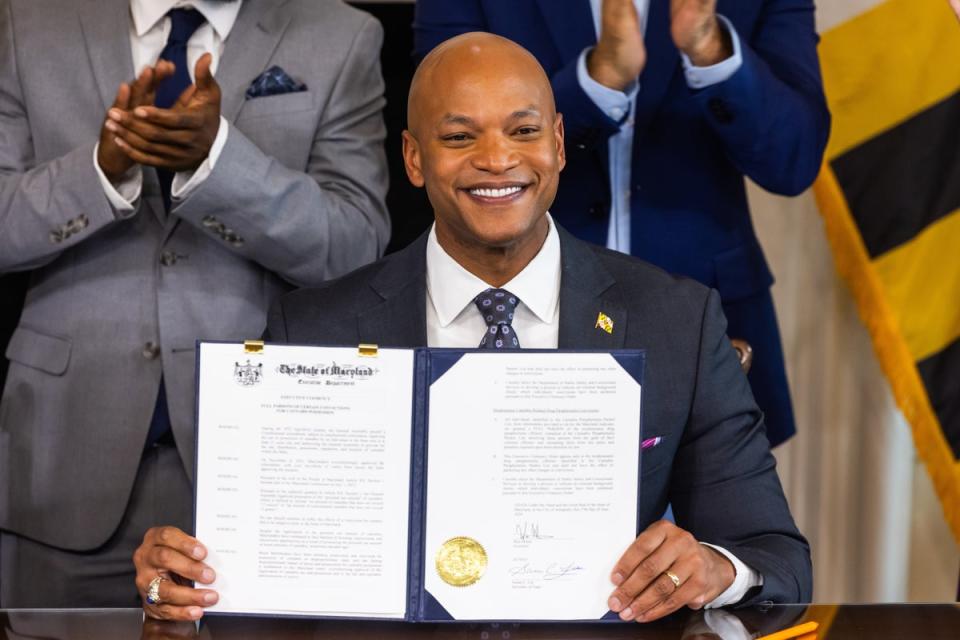Maryland governor pardons 175K marijuana convictions in ‘most far-reaching and aggressive’ order
More than 175,000 people with marijuana convictions in Maryland received a pardon from Governor Wes Moore on Monday, in one of the largest acts of clemency for crimes related to the drug in the nation.
The pardons are part of Moore’s initiative to “right” the “historical wrongs” of criminal charges for low-level drug possession, which disproportionately harm people of color, making it more difficult for them to obtain housing, employment, education and more.
After Maryland made recreational cannabis legal last year, Moore said it was important to recognize and correct how its criminalization has affected thousands of individuals.
“We cannot celebrate the benefits of legalization if we do not address the consequences of criminalization,” the governor said in a press conference on Monday.

The pardons will forgive marijuana and paraphernalia possession-related charges, including for those who are dead.
Although misdemeanor cannabis charges often do not result in incarceration and state prosecution for them has ended, Moore said those low-level charges still hurt people because they remain on their criminal record.
“We’ve studied our history. Policy making is powerful and if you look at the past, you see how policies have been intentionally deployed to hold back entire communities,” Moore said.
The mass pardon does not automatically remove convictions from a person’s criminal record rather it allows them to apply for expungement which removes a charge permanently.
Moore’s sweeping order comes just two days before Juneteenth, a federal holiday that commemorates the end of slavery in the United States after the Civil War.
“We’re taking a big step in enacting the kind of policies that can reverse the harm of the past and help us to work together to build a brighter future,” he added.
Moore’s widespread pardon is one of the largest acts of clemency in the country, rivaling Massachusetts which pardoned all misdemeanor convictions related to marijuana earlier this year. At least nine other states have taken action to pardon low-level marijuana convictions as well.
President Joe Biden pardoned simple marijuana possessions at the federal level in 2022.


